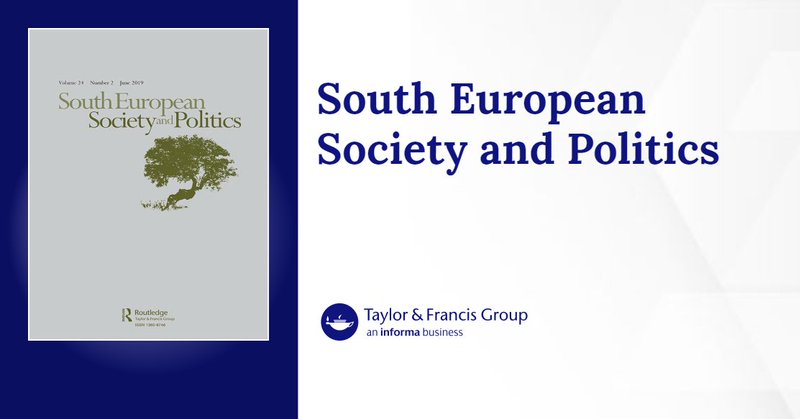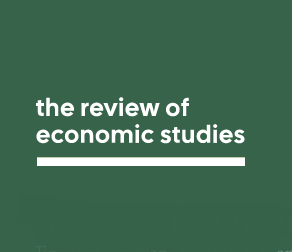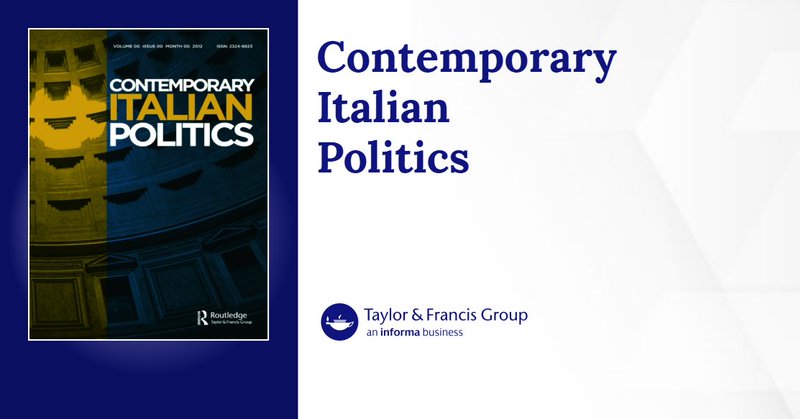
Davide Vittori
@DaveVitto
Followers
558
Following
2K
Media
77
Statuses
2K
Polsci scholar at University of Valencia. Previously, @SciencePoULB, Antwerp University, Luiss Unviersity, Nijmegen University, EUI Florence and others
Joined April 2010
Finally, many thanks to the editors of @sesp_j and the anonymous reviewers for their constructive feedback throughout the publication process. 🙏
0
0
0
Our study shows that context matters: Italy’s unique political history and party system shape how citizens imagine democracy should work. https://t.co/4s2DwZlDgD DM if interested in a free copy!
tandfonline.com
While citizens’ preferences for governing actors have attracted growing interest, little is known about how these preferences relate to partisan support. Using original survey data from 5,000 Itali...
1
0
0
3️⃣ Some findings challenge expectations. Support for direct democracy isn’t confined to populist parties. And, surprisingly, many populist voters favour compromising politicians — perhaps reflecting frustration with political instability rather than hostility to elites. (7/8)
1
0
0
2️⃣These preferences are significantly correlated to party preferences. Voters of different parties hold distinct views on who should have power. Left-wing voters are more favourable to expert-led governments. Right-wing voters are more open to non-traditional actors. (6/8)
1
0
0
1️⃣ Italians’ preferences for governing actors mirror broader European patterns — citizens think in terms of politicians, citizens, experts, and non-traditional actors (like business or religious leaders). (5/8)
1
0
0
Why 🇮🇹? Because Italians have directly experienced: Representative democracy (party government) Direct democracy (referenda) Technocracy (expert-led cabinets) And 🇮🇹 fragmented party system makes it ideal for exploring how governing preferences connect to party choice. (4/8)
1
0
0
Most studies focus on support for populism or direct democracy. What we lack is a systematic analysis of whether different party electorates hold distinct governing preferences. That’s the gap we aim to fill using Italy as a case study. (3/8)
1
0
0
In recent years, scholars have paid increasing attention to how citizens think governments should operate — whether power should lie with elected politicians, ordinary citizens, or independent experts. But do these preferences translate into actual voting behaviour? (2/8)
1
0
0
🧵 New paper out in South European Society and Politics Are citizens’ preferences for who should govern linked to how they vote? 🇮🇹 Together with Sébastien Rojon, @jbpilet, and Emilien Paulis, we explore this question in the Italian context.
1
1
1
📢NEW ARTICLE!📢 🇮🇹 Are citizens’ preferences for who should govern linked to their voting behaviour? The case of #Italy Read the article by @DaveVitto, @PolPartProject @jbpilet & E. Paulis here 👇 https://t.co/fC2nwtSTUa
0
2
4
"Non vogliono la pace ma il weekend lungo" hanno dichiarato i palestinesi a proposito dei ministri italiani. [@CitymanAlberto]
4
97
628
"Even voting?" "Especially voting."
"Political brokers use social networks to identify and target reciprocal non-copartisans for vote buying. Parties recruit brokers central in networks to sway persuadable voters." From @rduartegonzalez, Finan, @HLarreguy, and @LauraASchechter: https://t.co/bgFlhCbem7
#REStud
16
195
2K
Thank you for everything you have taught me. Your teachings have made me a much better person and academic than I ever could have imagined. RIP
0
0
1
4/ 🇮🇹 Why Italy? Italy was hit hard by COVID-19 and had a unique political situation: → Radical right Lega joined the pro-science Draghi gov’t. → Radical right Fratelli d’Italia stayed in opposition, fiercely criticizing restrictions. Perfect for testing politicization dynamics
0
0
0
7/ 📄 Want to read more? Check out the full paper here: https://t.co/6hc6droTB7 If you’d like the PDF, drop me a DM.
tandfonline.com
In the midst of the COVID-19 crisis, the role of science in politics became crucial but highly politicized, leading to significant distrust in some segments of society. This article examines the po...
0
0
0
6/ 🗳️ Big picture Trust in science isn’t just about policy, but about politics: RRPs can weaponize distrust in science—but mainly when in opposition. Lega (gvt) vs. FdI (opposition): during covid and Draghi gvt, trust in science was main difference btw the two electorates.
1
0
0
5/ 📊 What did we find? ✅ Trust in science strongly correlated w/ positive government evaluations ✅ Trust in science reduces the likelihood of voting for radical right parties—but mainly when those parties were in opposition. In short: trust in science = political dividing line
1
0
0
3/ 🔑 The Research Using original survey data from Italy, we tested two key hypotheses: 1️⃣ Trust in science correlated w/ support for governments enforcing restrictions. 2️⃣ Propensity to vote for radical right populist parties in gvt and in opposition differs based on gvt status
2
0
0
2/ 📌 The Context COVID-19 was unprecedented: never before had experts been so prominent in shaping policy in Europe. But with this prominence came politicization—especially from radical right parties who opposed restrictions.
1
0
0
1/ 🧵 How does trust in science shape politics? As scientists played central roles during COVID-19, their involvement fueled both trust and backlash. Our new paper explores how trust in science influenced voting behavior and government support during the pandemic. 👇
1
0
0







